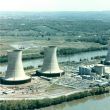Original mission, or expanded goals
By Raymund Jose G. Quilop, February 5, 2013
Reading my colleagues' first-round essays only reinforces my sense that the Nuclear Suppliers Group (NSG) is at a crossroads. As Rajiv Nayan aptly puts it, the "NSG will have to make a decision … [whether to] fight old battles or meet new challenges." Indeed, the choice that the NSG faces is similar to that which any organization might face at a certain moment in its existence: whether to continue pursuing the mission for which is was established, while running the risk of becoming less relevant, or to adapt to a changed environment, at the risk of losing sight of its original purpose. If the NSG controls access to nuclear technology too tightly, and access to such technology spreads despite the group's efforts, the group could lose its relevance. If it expands its membership or loosens controls on technology too fast, it may cease to be an effective export control regime.
Because the NSG was established primarily to control the spread of nuclear technology and materials, the group is generally associated with nonproliferation instead of with the other two pillars of the Nuclear Non-Proliferation Treaty (NPT) — disarmament and the peaceful use of nuclear energy. The NSG's nonproliferation focus is an aspect of the group that observers, including the participants in this Roundtable, simply have to accept. But precisely because the group is essentially a nonproliferation mechanism, perceptions abound that the NSG practices nuclear discrimination. (Kayhan Barzegar in his first essay argued ably that this discrimination is real at times.) This is a reality that the NSG itself must take seriously.
A possible remedy for these perceptions of discrimination would be an expansion of the group's membership. But expansion could be a double-edged sword. While expansion could spread the values that the NSG has always espoused to a broader range of countries and could make the group more relevant to a strategic environment that has evolved tremendously since 1975, it could also undermine the group — for instance, if a new member behaves in a fashion inconsistent with the NSG's principles. And it must be remembered that the group's membership has expanded a good deal already. Therefore, what the group perhaps ought to do is develop a clearer set of qualifications for membership, and only then consider expansion. Even this, though, would not guarantee that future members would always act in accordance with the organization's values. Member nations are states after all, and national interest will always help drive their actions.
Complement, not supplant. My own sense is that the NSG should continue to focus on the nonproliferation goals that brought its members together in the first place (though of course the group must give due consideration to the needs of countries that require nuclear technology and materials for peaceful development). An expansion of membership might be appropriate in due time, but for now a premium should be placed on deepening cooperation among the group's existing members.
At the end of the day, even though the NSG is international in character, the group should be seen as and appreciated for what it is — a sub-global body that exists to complement, not perform the functions of, global institutions that are mandated with promoting all three pillars of the NPT.
Topics: Nuclear Energy, Nuclear Weapons
Share: [addthis tool="addthis_inline_share_toolbox"]














